Hiking the big one
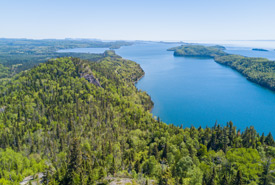
Big Trout Bay, Lake Superior, ON (Photo by Costal Productions)
My dental training and career as a research scientist have allowed me to live, work, hike, bike and paddle in fascinating ecosystems around the world, including Asia, New Guinea, Europe, Africa and the Americas. After retirement, I was fortunate...
Zebra and quagga mussels: Tiny but terrifying invaders
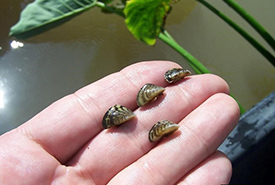
Zebra mussels (Photo by Michael Massimi, Barataria-Terrebonne National Estuary Program/Bugwood.org)
As motivated and concerned members of the community, there are countless opportunities to reduce our carbon footprint, protect habitat and conserve biodiversity. Invasive species are just one piece of the puzzle, and the good news is that...
Dive into Grand Cayman's pristine waters
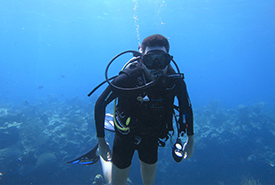
Me diving in Grand Cayman (Photo by Rick Lambert)
In April, I went on a week-long scuba diving trip to Grand Cayman with 12 other members of a Toronto-based scuba diving club I belong to. While I had been diving in the Caribbean Sea several times before this trip, this was my first time doing it...
Paddling through the “Everglades of the North”
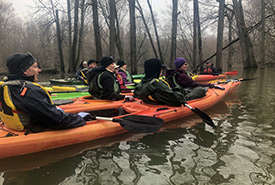
Kayaking through the canopy in the Minesing Wetlands, ON (Photo by NCC)
It’s a foggy spring morning, quiet and still, not a whisper of wind in the air, and you’re paddling through a forest of silver maple, hackberry and bur oak trees. The canopy above is perfectly reflected in the glass-like water, which...
Sudbury lakes are becoming less acidic
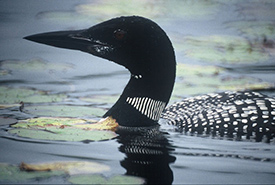
Common loons moult their feathers, starting at the base of their bills, before autumn migration in September. (Photo by Robert Alvo)
In my July 5, 2018, blog, I summarized my findings of over 25 years of examining the effects of lake acidification on common loon breeding success in the Sudbury region of Ontario. Although Sudbury's lakes have improved after decades of sulphur...
The importance of boreal forests
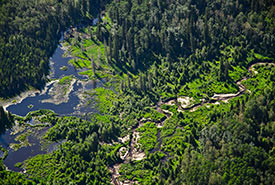
Boreal forest by Fort McMurray, AB (Photo by Michel Rapinski)
This past summer, the Nature Conservancy of Canada (NCC) participated in the protection of the largest contiguous area of boreal forest in the world. This amazing feat was achieved in partnership with the Tallcree Tribal Government, the...
Multi-talented organisms: How seaweeds can affect our daily lives
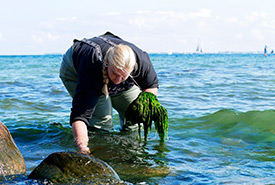
Dr. Sophie Steinhagen collecting seaweeds (Photo courtesy of Dr. Sophie Steinhagen)
Seaweeds, a type of macro-algae (a group that includes benthic [attached to the bottom] marine algae that are typically visible to the naked eye), provide hope for a more sustainable future, through healthier food, renewable energy and fewer...
How plastic waste threatens marine organisms
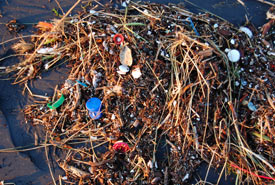
Plastic waste is often seen washed up on shorelines (Photo by Kevin Krejc/Wikimedia Commons)
Ocean plastic pollution has grabbed worldwide attention in quite a short period of time. This is because the impact of plastic waste on marine plants and animals is tremendous. Plastic garbage patches the size of small countries floating on the...
Why Canada needs to be a global leader in the protection of fresh water
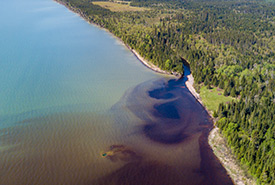
Black Bay, Lake Superior, ON (Photo by Costal Productions)
It’s a luxury to not think about water. Most Canadians watch it flow from the faucet and go down the drain without considering its source or destination. When we do think about water, it’s only about where the nearest tap is. Many...
Get to know 10 of Canada’s most significant (and big!) natural areas
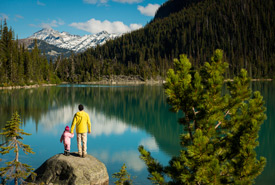
(Photo by iStock)
Large, intact natural areas are home to Canada’s most valuable ecosystems. These spaces are key to our quality of life. Canada’s forests, grasslands, wetlands and coastal areas absorb carbon dioxide, provide buffers for flooding,...

